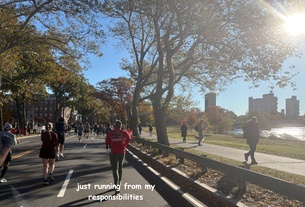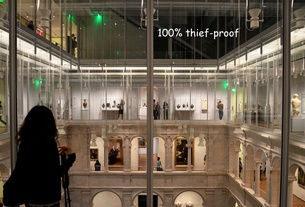“I do not want Harvard to play a leading role in relaxing the moral code of college youth,” Watson said. “We cannot have rules more liberal than a standard generally accepted by the American public.”
From a historical perspective, Elizabeth C. Ahern ’12, who wrote her senior thesis on Harvard in the 1960s, said that the scandal was given added attention due to the University’s status as an important national establishment.
"Harvard was seen as a storied institution,” Ahern said. “[Administrators] were charged, whether fairly or unfairly, with upholding the mores of the time."
As criticism mounted, Monro enlisted the help of University Health Services and Carl A. L. Binger ’40, a psychiatry consultant, to conduct a study on the sexual relationships between Harvard and Radcliffe undergraduates.
Dr. Graham R. Biaine, psychiatrist at UHS, contended that “undergraduates are not emotionally equipped to deal with sexual intercourse,” according to a Crimson article from the time.
The research, however, gained little traction among students. According to the article, “‘When you're in love, it's all right’ [was] becoming the new dictum.”
MORES TO BE BROKEN
Students had grown to view parietals as a formality rather than a steadfast rule, and the administration’s concern seemed “antiquated” and “paternalistic,” according to Purvis. Current Dean of Freshmen Thomas A. Dingman ’67 called the system “a little draconian.”
Monro noted at the time that students were pushing back on the College’s oversight. "When we talked to the students we found a prevailing attitude that what went on in the rooms during social hours was none of the College's business," he told reporters.
There was a sense that “the administration doesn’t get it, they’re too old school,” Ahern said, adding that the student’s of a new generation felt, “you’re an adult and you should be treated like an adult.”
For many students, the administration’s response to the alleged misuse of parietals was delusional.
“The College authorities know we don't have girls in our rooms just to hold hands and do intellectual exercises, so they must approve of what we are doing,” one student said to The Crimson at the time.
In a 1963 response to Monro’s letter, Paul S. Cowan ’62 wrote in a letter to The Crimson about the differing student and administrative positions. “The gap between how the Administration thinks undergraduates act and how they really do act is presently too great for sensitive legislation,” he wrote.
At a university that most students saw as a bastion of forward thinking, the deans’ views seemed out of place.
“I guess we always thought of ourselves and the school as being progressive,” Purvis said.


